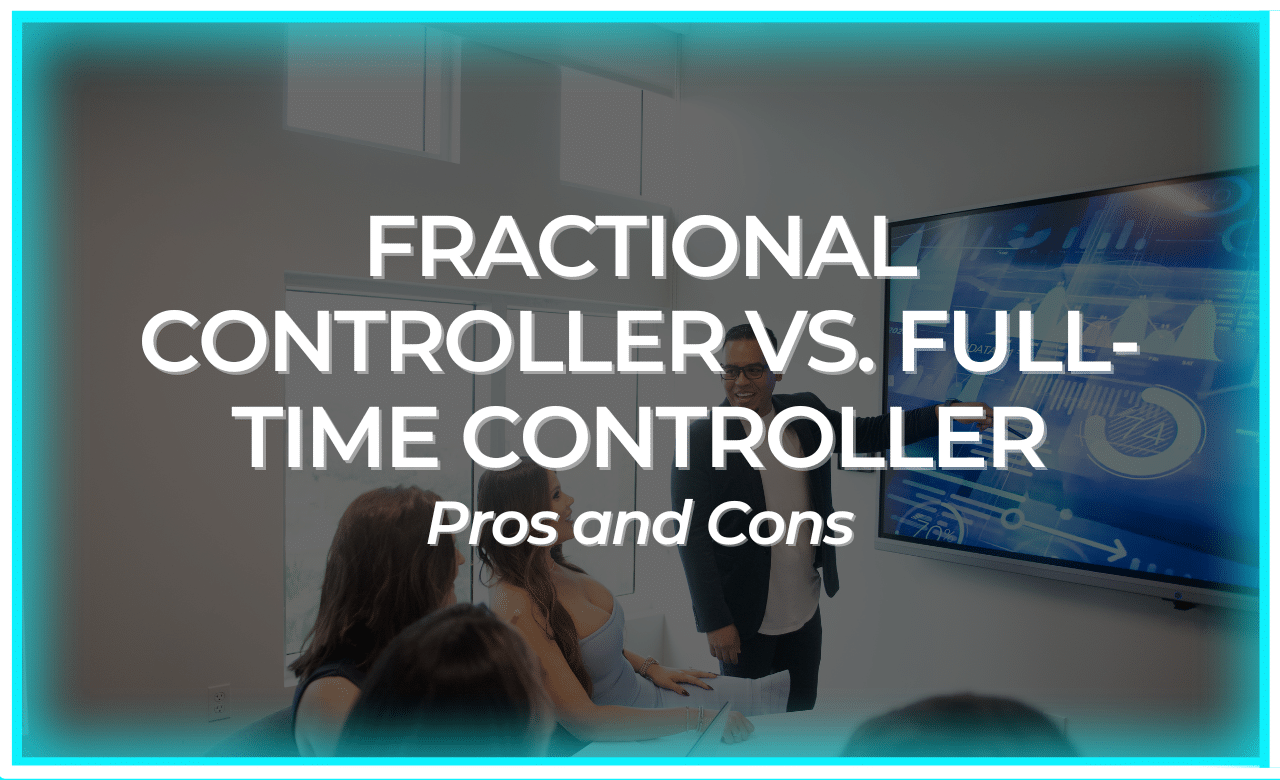Hi, I’m Bette Hochberger, CPA, CGMA, and for today’s quickie, I’ll be discussing the pros and cons of both fractional and full-time controllers to help you make an informed decision. In today’s ever-evolving business landscape, companies face critical decisions about their financial management. One such choice is between hiring a fractional controller or a full-time controller. Each option comes with its own set of advantages and challenges, making it essential for businesses to evaluate their unique needs.
But businesses are faced with a crucial decision: should they hire a full-time controller or opt for a fractional controller? Both options have their advantages and disadvantages, and the choice ultimately depends on the specific needs and circumstances of your organization. Let’s dive into the pros and cons of each approach to help you make an informed decision.
The Full-Time Controller
The traditional approach to financial management involves hiring a full-time controller to oversee your company’s accounting and financial operations.
Pros:
– Dedicated focus on your business
– In-depth knowledge of your company’s financial landscape
– Continuous availability and immediate response to financial needs
– Seamless integration with your internal team and processes
Cons:
– Higher salary and benefits costs
– Potential for underutilization during slower periods
– Limited exposure to diverse industry experiences
– Lack of flexibility in scaling resources as your business evolves
The Fractional Controller
In recent years, the concept of the fractional controller has gained traction, offering a more flexible and cost-effective alternative to the full-time model.
Pros:
– Lower overall costs compared to a full-time hire
– Access to a seasoned financial expert with diverse industry experience
– Scalability to match your business needs as they change
– Objective and impartial perspective on your financial operations
Cons:
– Potential for divided attention across multiple clients
– Steeper learning curve to understand your unique business
– Lack of continuous on-site presence and immediate availability
– Potential for disruption during transitions between fractional controllers
Factors to Consider
When deciding between a full-time controller and a fractional controller, consider the following factors:
Company Size and Growth Stage
Smaller businesses or those experiencing rapid growth may benefit more from the flexibility and cost-effectiveness of a fractional controller. Larger, more established companies may find value in the dedicated focus of a full-time controller.
Financial Complexity
If your business has sophisticated financial needs, such as complex reporting, forecasting, or compliance requirements, a full-time controller may be better equipped to handle these demands.
Budgetary Constraints
If cost savings are a priority, a fractional controller can provide high-level financial expertise at a lower overall expense.
Organizational Culture
The level of integration and collaboration required between the finance function and other departments may influence the choice between a full-time or fractional controller.
The Hybrid Approach
In some cases, a hybrid approach combining both full-time and fractional controllers can be an effective solution. This allows you to leverage the strengths of both models, ensuring comprehensive financial management while maintaining flexibility and cost-efficiency.
Choosing between a full-time controller and a fractional controller is a strategic decision that requires careful consideration of your business’s unique needs, financial goals, and resource constraints. By weighing the pros and cons of each approach, you can make an informed choice that sets your organization up for long-term financial success. Remember, there is no one-size-fits-all solution, and the right choice may evolve as your business grows and changes over time.
Ready to hire a Fractional Controller? Schedule a meeting with us to get started today!
As always, stay safe, and I’ll see you next time!










